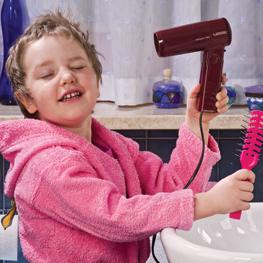
As summer comes to a close, our focus returns to education and school. Families often reflect upon last year and make resolutions on how to make the upcoming school year more successful… Where to start? Meet with each sibling to discuss the next school year, focusing on the evolution of responsibilities and expectations. Key topics to discuss are: bedtime/morning routines and homework.
Bedtime Routines
Nightly hygiene – Is there a bath/shower? Hair washing? How many times a week? Brushing teeth? It always surprises parents when their teens do not have good hygiene routines when hormones kick in. The key is to start early and teach young children about hygiene and develop clear expectations.
What time is each child to be in bed? Most Canadians are sleep deprived; research has demonstrated that lack of sleep significantly impacts learning. The Canadian Sleep Society has identified specific sleep needs for children of all ages, www.canadiansleepsociety.ca.
Lights out? Bedtime stories – What time do children have to be ready for bed in order to get a story? Daily reading to your children builds their vocabulary and overall knowledge. It is sometimes surprising that upper elementary students still enjoy reading with a parent - pick a novel you will both enjoy reading
together. Or…
Encourage independent reading – If a child is in bed on time, parents can allow them individual reading time that reflects their age (15 minutes of reading for the 10-year-old before lights out). Reading before sleep is a healthy lifetime habit.
What time are all electronic devices turned off? Research recommends that children should not have electronic stimuli (TV, computers, games) two hours before sleep. Electronics, including cell phones, should not be kept in bedrooms - parents are often surprised to find out that teens have been texting late at night. Write down the routine as a checklist to be followed for the first month so the expected behaviors become habits. Have preteens write their own to-do checklist. For children who struggle with routines or get out of bed after lights out, establish a reward system.
Morning Routines
What time does your child’s alarm need to be set for? All children who can identify the numbers 0 to 10 are able to use an alarm clock. Teach your children independence – start preparing them for university in primary school.
Morning hygiene – Washing up, tooth brushing, hair combing, shower? Make another checklist - preempt the arguments you may have with a reluctant teen.
Are clothes picked out in the morning or the night before? Discuss with your children what is appropriate school clothing - review the implications of the Alberta seasons. Teach them to make good choices, fade support as they make appropriate decisions. Teens need different support in terms of laundry responsibilities.
Who makes lunch and when? Making lunches is an excellent opportunity for children to learn about the Canadian Food Guide - encourage children to make choices, “Which fruit would you like?”
“Where is my school stuff?” Create a launching and landing pad - designate a spot where school things (backpacks, agendas, coats, lunch kits) always go to avoid last-minute panic and searching. Organize this space with your children – add labels and checklists as needed.
Homework
Where is homework completed? Identify a workable environment for homework completion. Teens may be successful working at a desk in their room, while younger students may be better off at the kitchen table. Have your children gather and organize homework supplies (pencils, calculators, etc.). Eliminate environmental distractions (TV, social media). Look over your child’s homework when they are done - many parents have been duped by a clever kid who appears productive.
When is homework completed? Avoid the stress of completing homework at the last minute. Set a time for homework and stick with it. The time may need to be adjusted to reflect other activities - make a weekly calendar that identifies a daily homework slot. The Alberta Teachers’ Association recommends 10 minutes of homework for each Grade level (30 minutes for Grade 3). Balance each child’s weekly commitments so they have downtime - we live in an age of many children being involved in too many after-school activities. All kids need time to play!
Establishing routines takes work and commitment. The effort that parents put into these three routines in September will pay off throughout the school year as well as develop lifelong planning skills.
Dr. R. Coranne Johnson, R. Psych., has been working in the education field for 24 years as a teacher, administrator and school psychologist. She has also taught university courses in the areas of special education, psychology and program effectiveness. Through Dr. Johnson’s work in schools, she has developed a wealth of knowledge about learning, literacy and special education. Dr. Johnson can be contacted through her website, www.helpingchildren.ca.
Calgary’s Child Magazine © 2025 Calgary’s Child